Movie Review: Penny-Pinching Romance
by javabeans
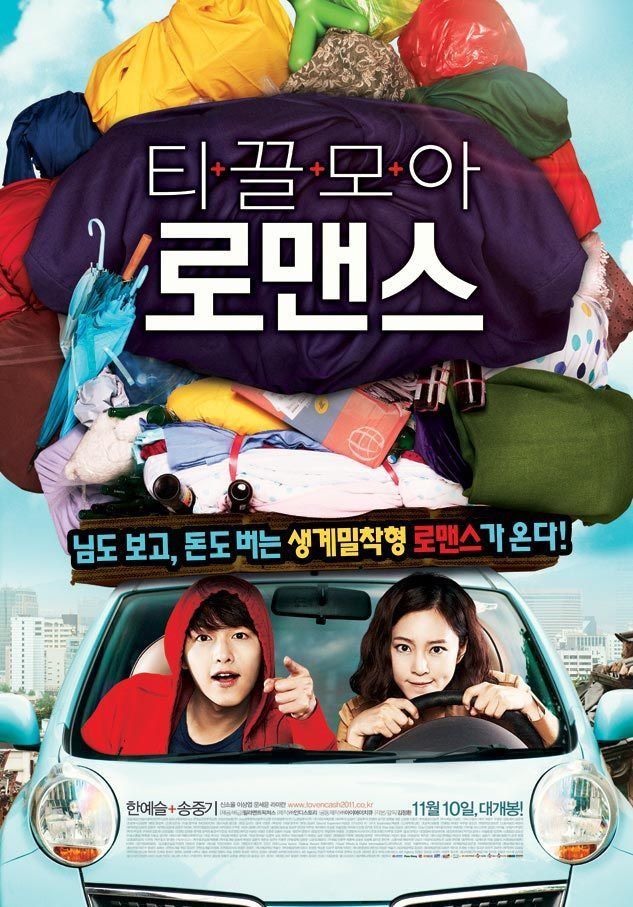
![]()
Ask, and ye shall receive. Actually, movie reviews are a feature girlfriday and I have wanted to contribute to for ages, but haven’t been able to get around to with the craziness of drama-recapping. I’m always excited to write about movies before they release, but strangely, once they do it’s like they drop off my radar. It’s not because I don’t like movies, but because access and exposure to Korean movies is so much more limited than with dramas. You wouldn’t think that would be the case given the proliferation of Hallyu and dramamania throughout the world, but it’s just a different beast.
In any case, I’m happy to be diving into my first outright movie review, which is for Penny-Pinching Romance, a romantic comedy that released last fall. (Called 티끌모아 로맨스 in Korean, I’ve also seen the title Love N Cash.) It’s a movie I was immediately interested in when it was announced, which I finally got around to seeing recently.
SONG OF THE DAY
Penny-Pinching Romance OST – “웃어요” (Laugh) [ Download ]
Audio clip: Adobe Flash Player (version 9 or above) is required to play this audio clip. Download the latest version here. You also need to have JavaScript enabled in your browser.
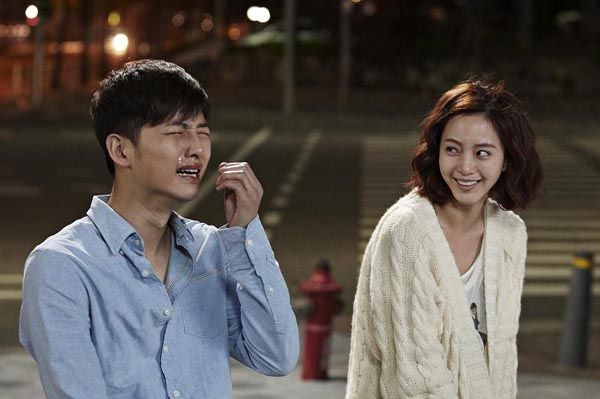
The premise: Our money-grubbing tightwad of a heroine teams up with an unemployed loser in a two-month-long money-raising scheme, resulting in some complicated relationships, blossoming romance, and personal growth all around.
Sounds like fairly standard rom-com stuff, right? It is, but it also isn’t. There’s comedy, and there’s romance, but this movie isn’t really a rom-com at heart; at least, not in the way I think of standard romantic comedies. Its defining characteristic isn’t cuteness (though there’s some of that), and neither is the film a throwaway fluff piece, as the marketing seemed to hint.
Overall the structure is familiar: Meet-cute (boy meets girl), complications (boy loses girl), romantic resolution (boy gets girl back). But Penny-Pinching Romance is undercut by a streak of — for lack of a better word — grimness, which keeps it from being too sweet while giving it a dash of dark comedy.
It’s that tonal quality — that dose of reality, painted in a somewhat stark light — that kept me from warming to the movie right away, but it’s also what made it stand out and ultimately made it a more fulfilling watch. The movie had a tendency to bring out those dichotomies; what occasionally tripped it up was also what I liked about it. Two sides of the same hard-earned coin.
As for the characters: You have, on one hand, the penny-pinching GU HONG-SHIL (Han Ye-seul), who’s practically transformed the saving (and earning, and scrounging) of money into an art form. She could pinch a penny till it cried and then offered to introduce a few more of its friends.
Hong-shil collects bottles for their recycling trade-in value, raises her own egg-laying hen, insists on walking distances under 10 kilometers, and keeps such a tight lock on her savings accounts that they may as well be wearing chastity belts. She collects free things whenever possible and sells them, or uses them herself. It’s a habit that leads to a funny scene where she grabs spare sugar packets at a cafe; to escape censure from the employee who catches her, she pretends to really, really like sugar and pours a dozen packets into her coffee, which she’s then forced to drink.
Hong-shil lives by a few mottos that she eventually teaches our hero: Nothing comes free in life; nothing is completely useless; and to survive against a cheetah, you don’t have to outrun the cheetah — just outrun slower prey. Also, there are three things that she can’t (or won’t) have anything to do with: religion, illness, and dating. Because they cost money.
She lives in a tiny rooftop room in Seoul, one building over from our hero. And I use the word hero loosely.
CHUN JI-WOONG (Song Joong-ki) moved up to Seoul from the sticks ten years ago in order to find a salaryman-type job with a large corporation. Ji-woong regularly joins in on the recruiting process, but with efforts that are half-assed at best. To nobody’s surprise, he never makes it past the early rounds.
He’s naturally charming and glib, and his silver tongue — and shameless attitude — have allowed him to scrape by all these years. He lives in a teeny rooftop room on the allowance money his mother sends him, though he’s currently several months behind on rent. He doesn’t seem to care much about that, or that he has less than five dollars to his name. He doesn’t try to find part-time work, preferring to stay home with his extensive porn collection or ride his beloved scooter with his scooter club.
Yes, he’s in a scooter club. It’s mostly because he’s trying to score with one of the girls, Kyung-joo, but when she announces she’s quitting because she found a job, he lies that he did too, to impress her.
His roving eye and carefree attitude results in one of the movie’s comic highlights, when he’s about to get lucky with Kyung-joo, who sends him out to buy condoms. He slaps down a pack at the counter, only to find he’s short on cash. He swipes his card — but he’s pennies short there, too. Hilariously, he’s so poor that even if he combined the dollar in his pocket and the cents in his account, he still wouldn’t have enough.
Ji-woong then wheedles the stone-faced clerk to go easy on him, or to split the three-pack with him, and finally resorts to the “Is that a UFO?” fake-out to steal the pack. Only, he ends up swiping a pack of breath mints in his haste, and he has to text the girl in frustration, “Let’s take things slow.”
In short, Ji-woong is a loser. There’s just no other way to put it.
He is lazy, careless, thoughtless, and selfish. He isn’t a hateful character, but we’re shown no redeeming qualities and since he has nobody to blame for his situation in life but himself, he inspires very little sympathy. If we weren’t watching this with the knowledge that this is Song Joong-ki playing a character (with Song Joong-ki’s pretty face), he’d be mighty hard to root for, or even like.
But as with other things in this movie, what works against it at the outset is also what pulls me back in the end, because these are characters who demonstrably change. It’s a little frustrating to watch him careen through life without a care — because it brings to mind the question, “Then why should I care?” — and the movie takes a while setting up its relationships.
While that translates into a first hour that feels meandering, when things start to shift and progress, the conflicts feel organic, and you find that you care what happens to these people. I didn’t connect with the film until well past the halfway point, but the slow build was worth the payoff.
The story is set in motion when Hong-shil hears that her neighborhood is being planned for redevelopment, and the current residents are being ousted by the developer, who will provide a compensation fee. The cutoff date for new tenants to register their residency to qualify for the payout is at the end of the week. Two-member households collect slightly higher amounts than single-resident homes.
So when she sees Ji-woong’s landlady pestering him for his back rent, Hong-shil gets an idea. She approaches the landlady and pays off Ji-woong’s late rent. Then, she pays for the next two months in exchange for registering her father’s name — her absent, wastrel gambler of a Dad — as the official occupant, so that she can collect the extra compensation when demolition day comes. (Essentially she pays a few hundred dollars to collect a few thousand, and the landlady is happy to take her cash.)
Meanwhile, the fed-up landlady uses this as a reason to kick out Ji-woong, since their contract is officially over. Maybe if he were more perceptive — or less of a slacker — he’d sense something off about this deal, but he just rolls with the eviction and huddles outside the rooftop room that night like a homeless person. Which he now is.
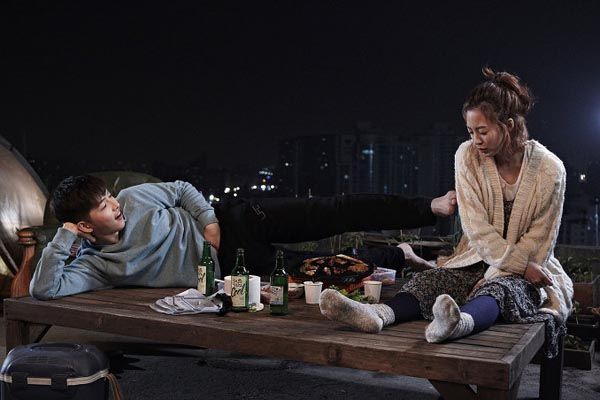
Hong-shil can afford to do this because she’s not actually poor — she’s just incredibly cheap. She has been saving money like it’s an Olympic sport, and in the past five years she’s amassed a small fortune, with the help of a fund manager friend.
When she sees Ji-woong shivering outside, she invites him over for a drink and offers to help him earn money using her particular know-how. He thinks she’s taking pity on him and she lets him think it, although she’s got an ulterior motive, prompted by her fund manager’s suggestion to earn extra money by creating an account with a borrowed name. She eyes Ji-woong as her tool.
He’ll benefit from her help, and she’ll benefit from his account. Win-win, in her eyes. The setup works for us as well, because she’s not cheating Ji-woong. He would literally be homeless without her, and while he isn’t stupid, he has a remarkable lack of ability to take care of himself. In an early scene, Hong-shil marvels, “That you’ve lived this long is a miracle.” On the other hand, if her plan goes well, they’ll both come out of their two-month deal richer.
So Hong-shil gives Ji-woong a tent to sleep in and a spot on her rooftop, and they get to work. She gives him a couple rules: Do as I tell you, and deposit your earnings right away. He balks when he sees that the account is in her name, but she reasons that he’ll control the bankbook and that her account has a higher interest rate. He shrugs and goes with it.
In the ensuing days, he learns from Hong-shil how to root around in abandoned homes for things to sell, doing anything and everything they can think of to shore up cash. They record tapes for grocery truck announcements. They perform odd jobs like acting as wedding photo extras. They forge star autographs.
I appreciate that Hong-shil isn’t your typical Candy character, which is what I expected and was therefore pleasantly pleased to discover was not the case. We’ve seen countless drama heroines fitting into this well-worn cliché: born poor, working countless part-time jobs, supporting mom and dad with her blood sweat and tears. Hong-shil does work hard, but she’s not above bending the rules (and the laws) where it suits her. She’s not a pristine good girl; she’s twisted just enough to be interesting.
For instance, the jobs they perform are legit. But Hong-shil has found ways to game the system, and that makes the schemes entertaining to watch. Some involve a little duplicity, like the ice cream cone they leave to melt in an outdoor fuse box at a badminton court: When the melted liquid fries the wires, they’re on hand to sell lighted badminton flies. It’s cold hard capitalism, baby. And Hong-shil’s not above a little petty theft, like swiping the industrial-sized toilet paper rolls from public restrooms to use at home.
Hong-shil imparts her wisdom as they build their bank accounts, such as explaining that people can’t distinguish between needs and wants — and they have the tendency to want what they don’t need. It’s why she doesn’t own a television, and she has a curious disconnect with the culture at large. She’s no hermit, but she has no pop-culture knowledge or interest; the only thing she can remember watching is an old tearjerker of a movie with her mother years ago.
Under her tutelage, Ji-woong starts to kick his long-unused brain into gear, and he starts thinking up schemes, too. But along the way, we also get to see the differences in their worldviews, which go beyond the obvious personality differences.
Ji-woong is aimless and penniless, and in Hong-shil’s mind all he needs is a goal. Like hers, in reaching toward that goal of 200 million won. He’s the opposite, pointing out inchoate concepts like the meaning of life and striving for personal connection and happiness. Hong-shil dismisses this, saying, “People are unhappy because they try to be happy.”
As they continue along their path, they have more of these conversations, and we start to see that neither of them is entirely right, but that they both need to hit more of a middle ground. And also, while it’s Hong-shil with the fat bank account and the roof over her head, she perhaps has just as much growing to do as Ji-woong.
He’s the one who points out to her that she’s so bent on collecting that money that she doesn’t even know what she wants to do with it. And it’s true — she has that target goal in her mind, but no real clue what lies beyond. Ji-woong’s own life philosophy provides a nice counter to hers, regarding how you deal with the problem of What You Have To Do versus What You Want To Do. In an early scene, he uses this as a pick-up line, smarmily explaining that if you only do the things you want to do, later on you won’t be able to do the things you have to do.
There’s a nice reversal later, then, in a more emotionally sincere moment when he tells Hong-shil that if she spends all her time doing things she has to do, she’ll find that she doesn’t know what she wants.
For a good long while, their partnership remains completely platonic — long enough for me to wonder whether there’d ever be chemistry between the two. It’s not until just past the halfway point that we get our first flicker of attraction, and even thereafter the romantic aspect of the movie is rather muted.
On the other hand, it’s the conversations like the one mentioned above that root the connection in something deeper, and I think ultimately gets me onboard their partnership. Because it IS a partnership, as much as it’s a romance, and they’ve got more going for them than hormones.
Plus, with Ji-woong being such a profligate character at the outset, you need more from him than a charming smile and a smooth compliment. He gives those out freely anyway; there’s no reason it would mean anything with Hong-shil. Sex is easy; caring is hard.
Take, for instance, the first time she lets her guard down: She comes home in glum spirits after realizing that her crush (her fund manager Kwan-woo) is actually involved with somebody else, and Ji-woong reads her mood and addresses this in a uniquely Hong-shil-appropriate way: He takes her to a store that’s closed for the night, takes out his universal remote, and flicks on the television inside — to screen that one special movie she remembers watching with her mother years ago.
Even aside from her miserly ways, Hong-shil is a quirky character, so it’s fitting that the trajectory of their relationship doesn’t follow the normal curve. She understands the principles of dating but doesn’t really know what to do with them, since dating has hitherto been a money-sucking waste of her time. How apropos that he would combine a thoughtful gesture with one that appeals to her tightfisted nature. (The universal remote? That slays me.)
It’s also the first thing Ji-woong does in the movie that’s not selfish, and that’s enough to make his earlier degenerate ways worth it for me. When earlier we saw him scrambling desperately for a condom so he could get laid, later he ignores a booty call to stay with Hong-shil, and does so with little regret. He stupidly blows his money buying shoes for that girl, again hoping to score — and the reversal of that scene toward the film’s conclusion will have you bursting into laughter and maybe wiping away a tear and sighing, “Awwww.” You have to wait a while to get the effect of the change, but the movie rewards patience.
A recurring motif is a tree out in the countryside that Hong-shil has a strong emotional tie to, which explains a lot about her character. Her father’s business went bankrupt right after her mother died, and he ended up running away to escape his debts and turned to gambling. Hong-shil was left with her mother’s ashes, just barely short of enough money to properly lay them to rest in a memorial vault. So she spread the ashes around the tree and tied a ribbon around the trunk, and has scrimped to save up money ever since.
With Ji-woong challenging Hong-shil to think beyond the number in her bank account, Hong-shil decides that she wants to buy the parcel of land housing the tree when her funds mature. It’s the first time she’s actually happy to purchase something, and he urges her to enjoy spending her money on things she wants.
As I mentioned, the romance angle is a bit unconventional, so suffice to say that when things go awry, the ensuing rift is really about trust, even though the argument centers around money. Money is such a key player in a literal sense that it’s interesting when it becomes a stand-in for something else, a mask for their emotions.
As for flaws, well, there are some. Like I said, the movie gets off to a slow start, emotionally speaking. I was very nearly off the train at several points early on, my enjoyment of Song Joong-ki notwithstanding. There’s little romantic tension, and I’m not entirely sure I buy the pairing of him and Han Ye-seul. I was won over to the characters’ relationship by the end of the movie, but chemistry-wise, I could take it or leave it.
Both were playing offbeat characters so the lack of spark worked fine with the story, and in fact if they’d sparked too much right off the bat, I think it would have worked counter to the characters. Namely, with Hong-shil and her rejection of dating as a concept, or her awkwardness in reading social cues.
Despite the strength of their connection in a mental sense, though, when the romantic elements started to creep in, they felt rather lacking. A lingering look here, a subdued hint of jealousy there — it wasn’t much, and I found myself wanting a stronger foundation for the romantic relationship to correspond to the other stuff I liked so much.
That aside, on an acting level, I liked both leads in these roles. I’ve been iffy on Han Ye-seul in the past, but I think I probably liked her best here in Penny-Pinching Romance than almost anything else, save perhaps for Fantasy Couple. The appeal comes more from Hong-shil than from her, but she makes it work.
Song Joong-ki, really, is the gem here. That probably surprises nobody who’s been following his career in recent years, but I wasn’t automatically assuming he’d deliver. I love him as much as the next drama fan, but I probably fit into the minority who thought his turn in Tree With Deep Roots was overstated.
He was good in that, for sure — great, even. But a revelation? A Daesang-worthy performance (however brief)? A tour de force? No, I think not. He did very well with a strongly written character whom we would have been hard-pressed not to like, all righteous and wise and vulnerable. I think it’s more impressive that he takes a lowlife character here — smarmy and shameless and borderline repellant — and turns him around into a man with a heart and a brain after all. He plays the earlier charming-rascal scenes with impeccable comic timing, then also manages to inject him with warmth and depth later.
As I mentioned earlier, the movie has a grim cast to it, although that doesn’t necessarily mean that it’s depressing. The rooftop homes are crumbling and dirty — not in a “drama series dirty” way, set-dressed to look charmingly cozy, but outright filthy at times — and there’s no rosy glow to these people’s lives.
Maybe it’s thanks to their personalities that it isn’t downright depressing, since Ji-woong is happy-go-lucky and Hong-shil is so fixated on her money goal that she’s almost emotionally stunted. You can’t help thinking, though, that maybe one more rooftop over, there’s a third disheveled, half-suicidal unemployed loser crying into his soju every night.
Thankfully that starkness fades as the movie heads into its latter half, and although that’s the half with the more dramatic turns, it’s also the one with more feel-good moments, with an uplifting resolution to leave us in cheerful hopes as we say goodbye to these characters.
The verdict: Wryly humorous rather than laugh-out-loud funny. Quirky characters bonding cutely, though I wouldn’t describe the movie with the word cute. Takes a while to get into, but ultimately rewarding. Overall, I’d give it a solid 7/10.
RELATED POSTS
- Penny-Pinching Romance releases posters
- Penny-Pinching Romance sets premiere, releases teaser
- Han Ye-seul, Song Joong-ki’s Penny-Pinching Romance
- Park Bo-young to romance wolf boy Song Joong-ki
- Myung-wol the Spy: Episode 1
- Song Joong-ki romances Han Ye-seul on the big screen
- Movie Review: My Sassy Girl
- Movie Review: boy Meets Boy
Tags: featured, Han Ye-seul, Song Joong-ki
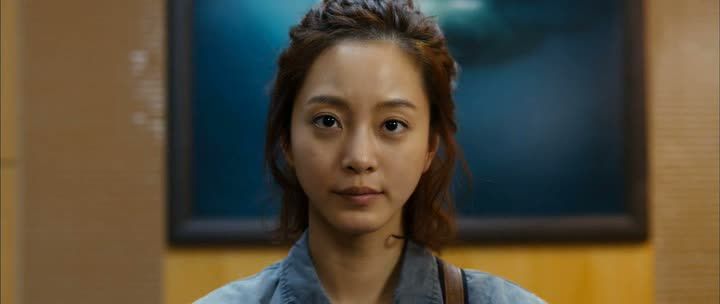

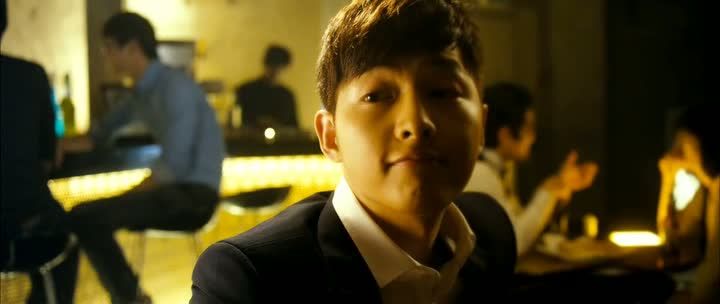
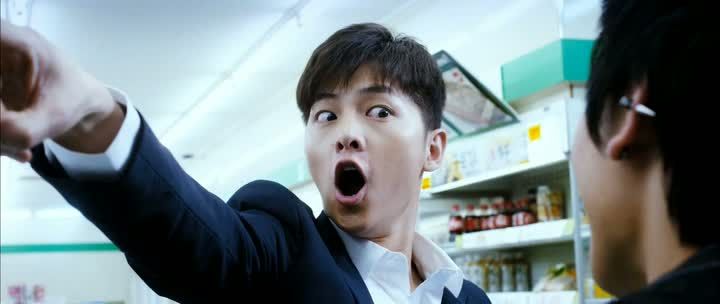
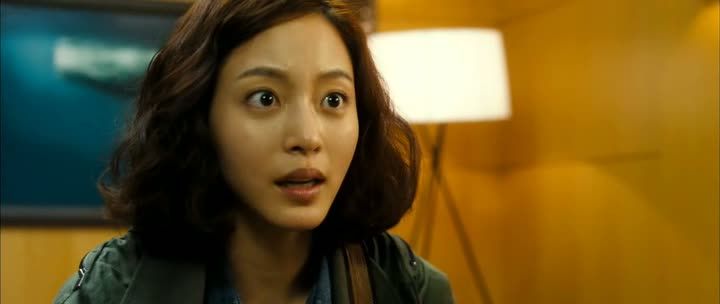
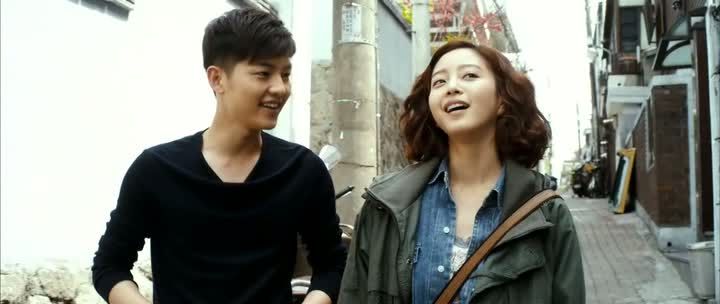
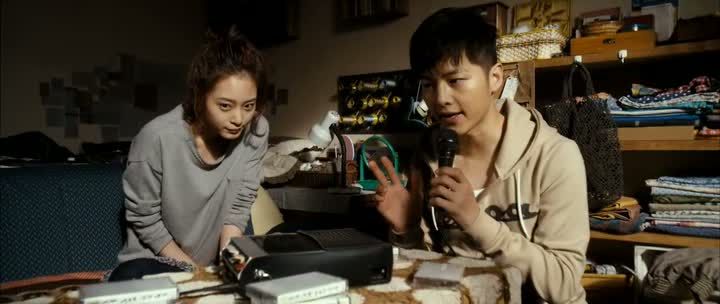

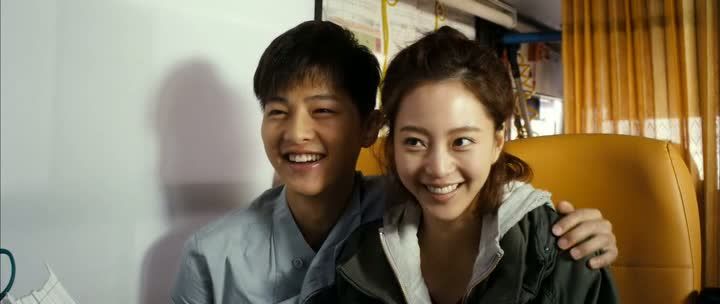
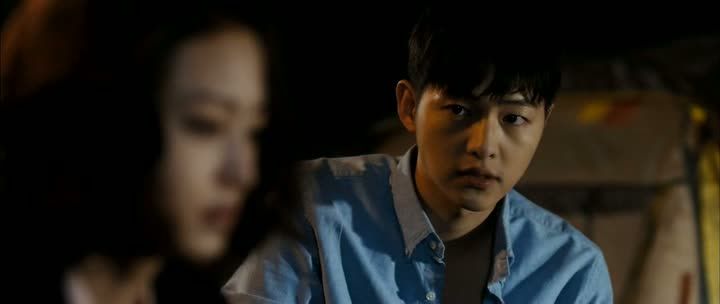
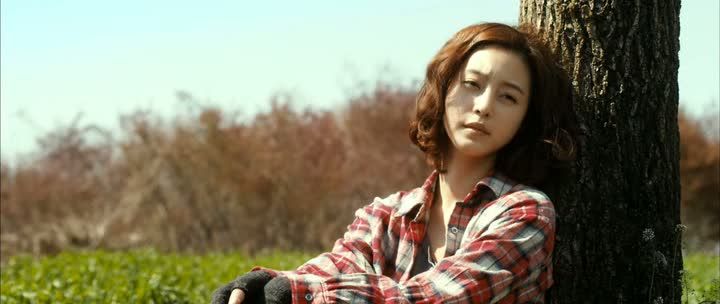
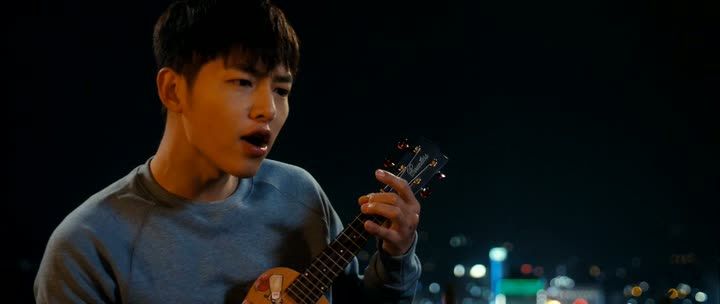
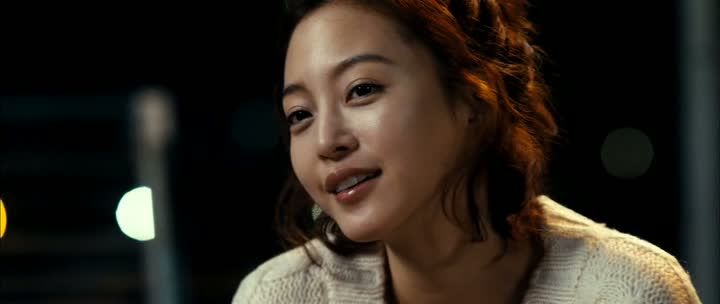
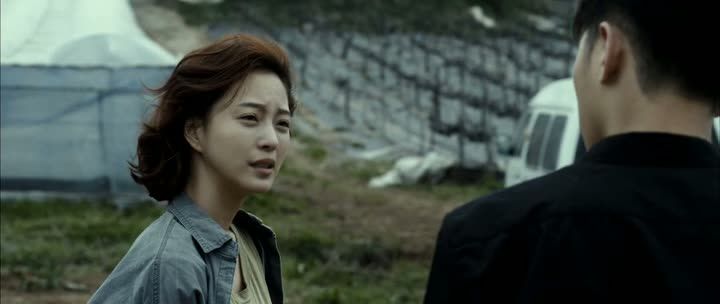
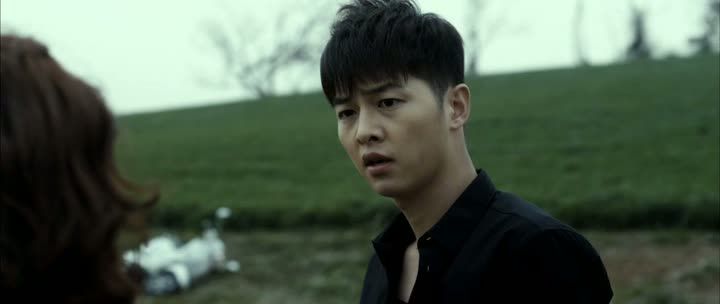
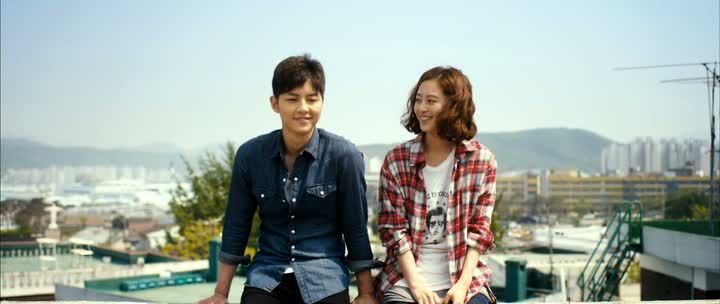
 Interview with Kim Yoo-jung
Interview with Kim Yoo-jung Hello Dramabeans series
Hello Dramabeans series
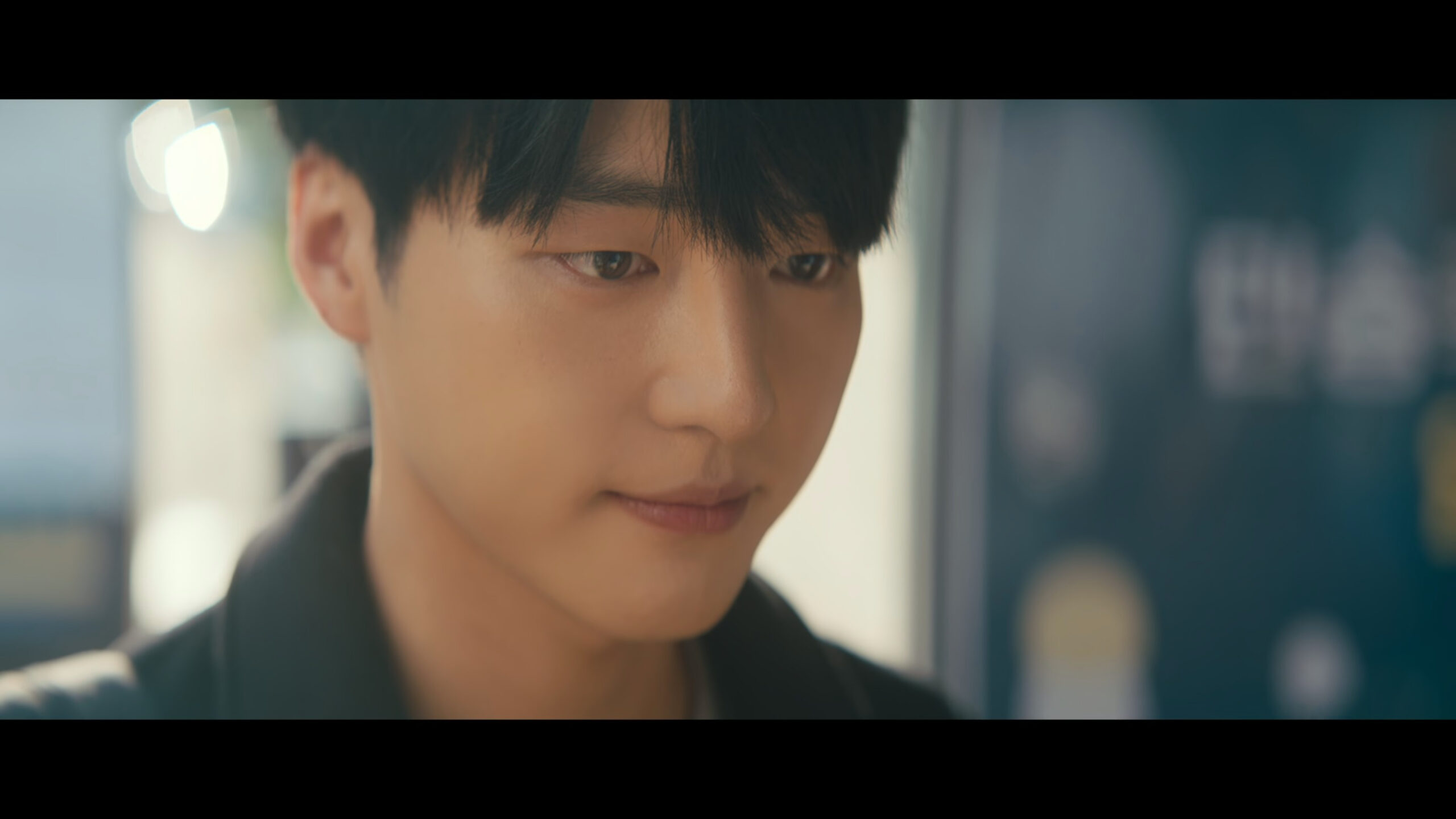
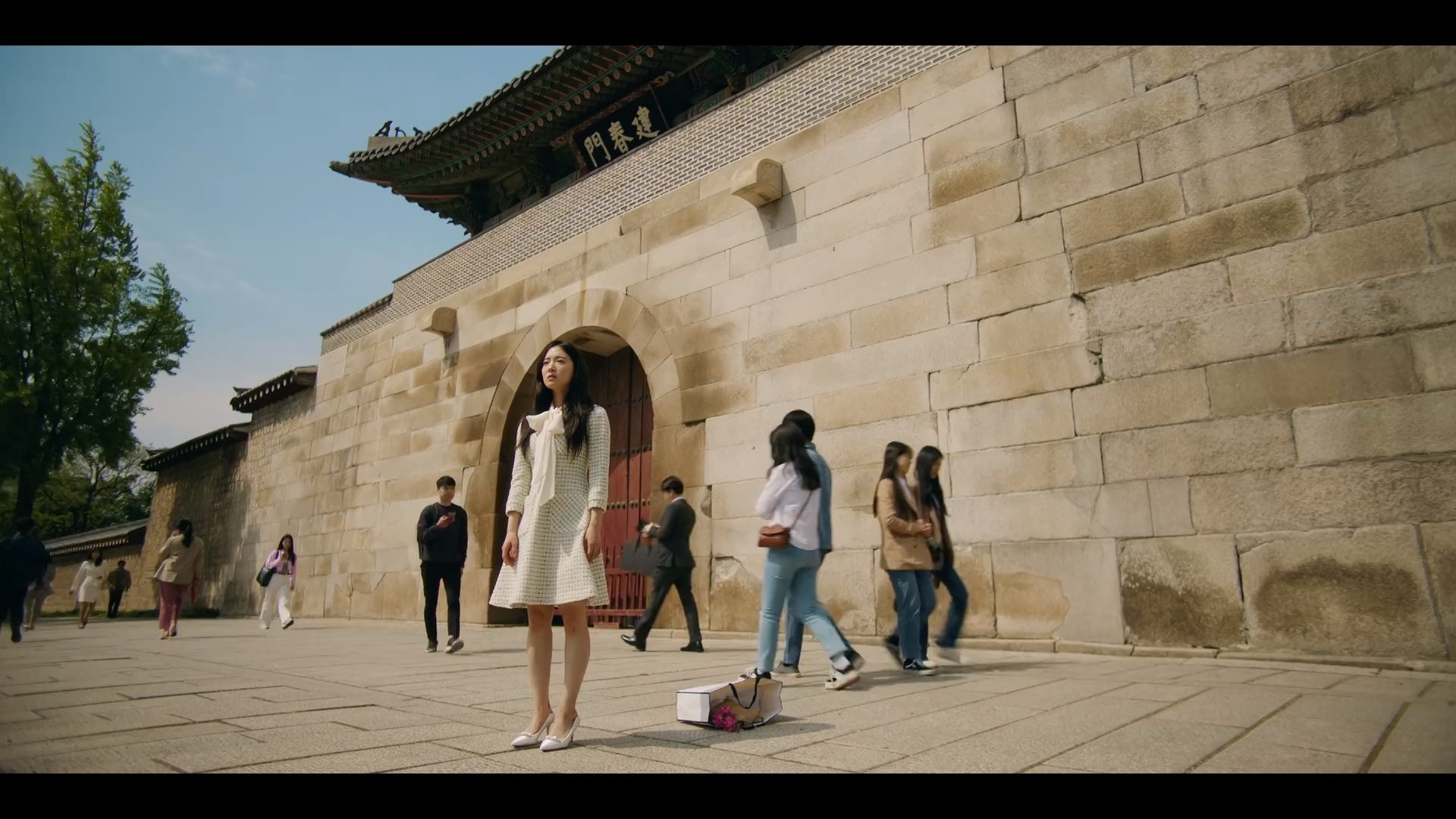


![[2022 Year in Review] The Bean Count](https://www.dramabeans.com/wp-content/uploads/2022/11/beancount_2022.png)
Required fields are marked *
Your email address will not be published. Required fields are marked *
51 blue
January 25, 2012 at 10:26 AM
dying to watch this movie *sigh* hope the subs will be out soon
Required fields are marked *
52 sam
January 25, 2012 at 12:27 PM
thanks for the review & spoilers. i watched it without subs, and with alot of guessing of the plot. i agreed. it wasn't a bad movie, not your typical rom-com, but it had its moments because the actors played them well. mentally i kept comparing it to My Pet, that showed at the same time, and I liked Penny Pincher Romance over My Pet, because the storyline was different and not so predictably cheesy.
Required fields are marked *
53 Ennayra
January 25, 2012 at 12:37 PM
I usually don't read the recaps before I've watched, but I figured I'll forget this movie's details by the time the subs come out (and I actually realize they're out). After reading your review, I'm fine with waiting. I'm a Song Joong-ki fan, but not hardcore.
Is a Chilling Romance recap in the works? I'm more of a Lee Min-ki fan, lol. I kept mixing up those two movies in my head b/c they were advertised as quirky rom-coms at about the same time last year.
Required fields are marked *
dani
January 25, 2012 at 12:38 PM
Yes, I definately want to see Chilling Romance...am becoming a super fan of both LMK & SYJ
Required fields are marked *
54 Carinne
January 25, 2012 at 12:45 PM
You really put a lot in this one JB. Maybe do yourself a favor and make movie reviews as weecaps instead. Take the reduced time away from full recaps to go take a stroll along the beach or Japanese garden.
Required fields are marked *
55 supah
January 25, 2012 at 1:36 PM
Oh snap! You beat me to it, JB. I was actually writing this review last night, but since I'm such a lazy-ass, you beat me to it.
I'd probably give it a solid 7.5, I loved it to pieces, and couldn't be more relieved that it went beyond the shallow rom-com shell it had been marketed as. It really worked for me on many levels. I loved the second half, the contrast between how it begun to the way it ended. Rewarding indeed!
I agree about the chemistry, they had a special bond and camaraderie, I enjoyed their scenes together but they seemed more liked loving, compassionate friends more than lovers. Which is also cool with me.
Required fields are marked *
56 Will work for soju
January 25, 2012 at 2:39 PM
Since according to a previous post there is no one more beautiful than Song Jun ki then by that logic he should only be paired with with himself. Two Song Jun kis in a movie (or drama) -- please drama gods, please!
Required fields are marked *
57 hAil3Y
January 25, 2012 at 8:06 PM
thanks! :D
oh oh could you please do Hello Ghost? i loveee that movie! :D
Required fields are marked *
58 reeen
January 26, 2012 at 6:42 AM
WOW! Thank you so much! Actually, that's exactly the movie I wanted recapped the most, because I watched it without subs and enjoyed it, but I still missed a lot of what's going on in their conversations... I especially like the spoiler! :) For me movie recaps would be even better than reviews, but reviews are already great.
I actually liked the understated romance and just loved seeing Song Joong-ki portray this character. Another movie mentioned on your blog I've watched recently is 커플즈. Also loved the performances in that.
Required fields are marked *
59 WM
January 26, 2012 at 8:06 AM
Thank you, thank you, thank you for reviewing this! I was very excited to see this, because I'd read weeks ago about this movie here on Dramabeans. After reading the review, it's now on my "find subbed" list. Great review, answered all my questions without being too spoilerish, and liked that you made sure the review was as even as possible.
Required fields are marked *
60 ifafa
February 7, 2012 at 7:05 AM
such a lovely girl han ye seul and cute song joong ki...................i'll waiting in indonesia.........
Required fields are marked *